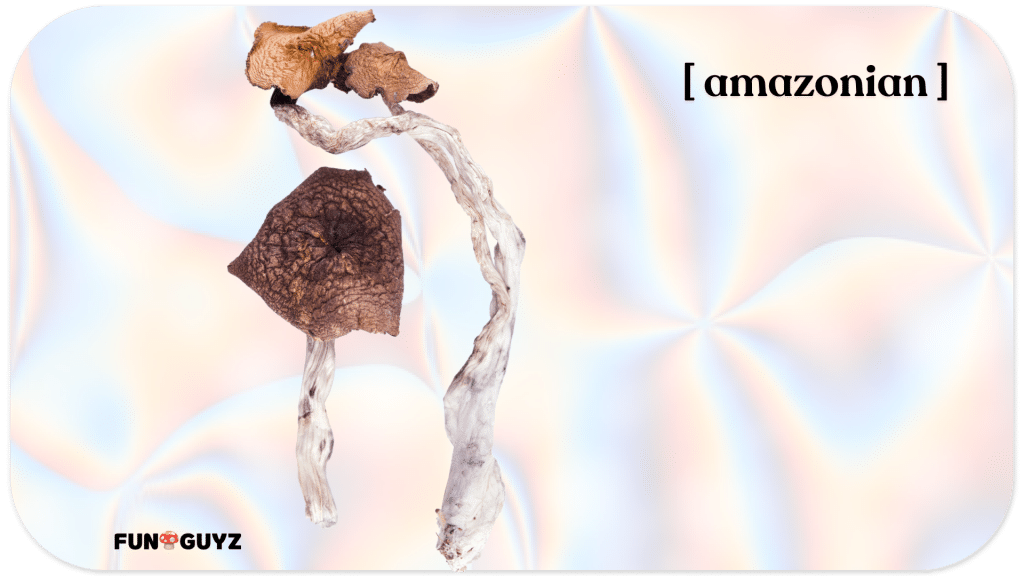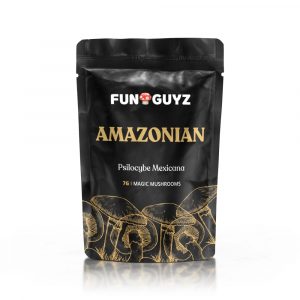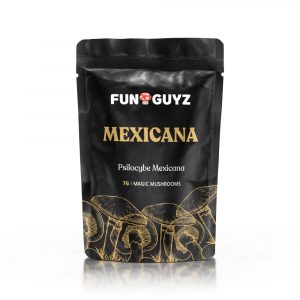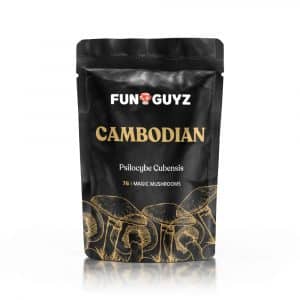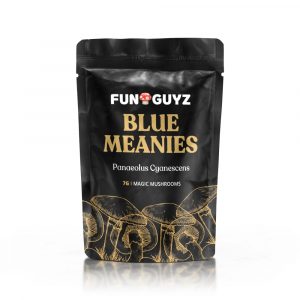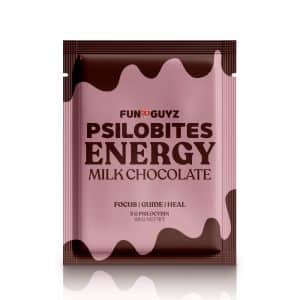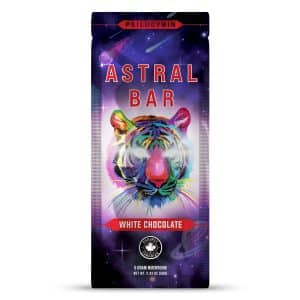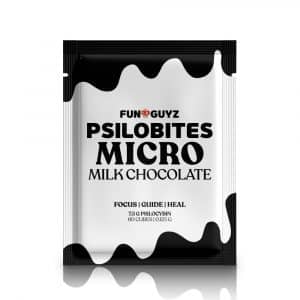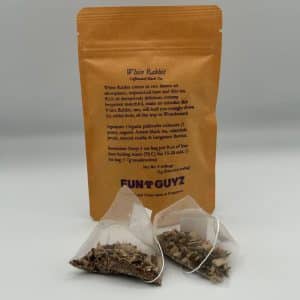No products in the cart.
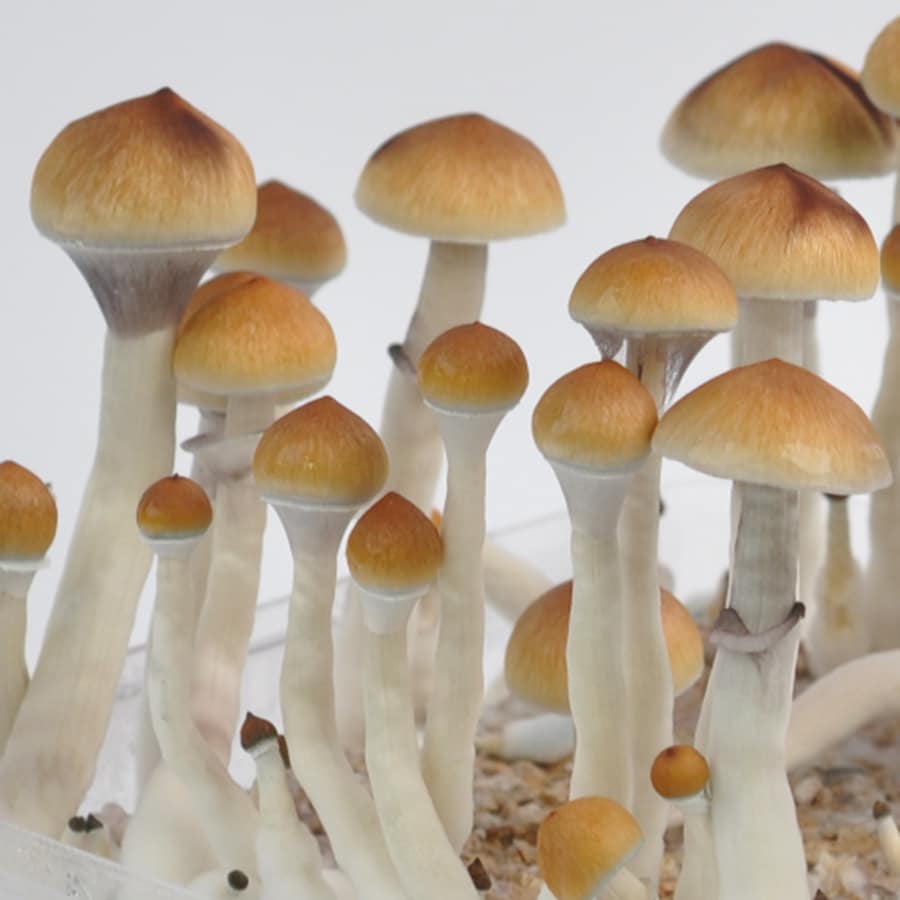
Amazonian Shroom Strain
Buy Amazonian magic mushrooms which hold a mystique born from their potent properties and the depth of cultural significance they carry.
Amazonian: in Details
Potential in modern medicine and therapy, where they offer promising avenues for mental health treatment. Their sacred role in indigenous traditions cannot be overlooked, as it provides us with valuable insights into sustainable practices and respect for nature’s gifts.
Amazonian Shroom Strain Specs
| Potency | Below Average |
| Cultivation | Beginner |
| Species | Plisocybe cubensis |
| Cost | $-$ |
| Rarity | ★ |
Unveiling Amazonian Magic Mushrooms
Taxonomy
Buy Amazonian magic mushrooms at our trusted online dispensary. They belong to a unique group within the fungal kingdom. They are distinct from other psychedelic mushrooms. What sets them apart is their specific biological makeup.
These fungi have evolved over millennia, adapting to their environment. Their evolutionary history ties closely with related species in the region. It’s fascinating how they diverge yet share common ancestors.
Understanding taxonomy is crucial for us. It helps us grasp why these mushrooms have certain properties. This knowledge guides researchers and enthusiasts alike in safe usage and conservation efforts.
Distribution
These mystical fungi thrive in particular geographic locations across the Amazon basin. Various factors influence where they grow, such as humidity, soil composition, and shade provided by dense forest canopies.
We see that climate change poses a significant threat to their habitats. With changing weather patterns, some regions may become less hospitable for these sensitive organisms.
Conservation efforts are vital for protecting these natural wonders. We support initiatives aimed at preserving biodiversity and ecosystems where these mushrooms flourish.
Cultivation Techniques
The traditional methods of cultivating Amazonian magic mushrooms respect nature’s rhythms and cycles. These age-old practices rely on intimate knowledge of local environments passed down through generations.
Modern techniques aim for increased yield without sacrificing quality or potency—quite a delicate balance to maintain! Environmental factors like temperature and moisture levels play critical roles here too.
Cultivators face numerous challenges, from contamination risks to legal constraints depending on jurisdictions around the world. Sustainable farming practices ensure we don’t harm ecosystems while enjoying what they offer—this principle is something we hold dear in our cultivation endeavors.
Psychedelic Properties
The chemical compounds found in Amazonian magic mushrooms induce powerful psychedelic effects once consumed. Comparing them with other substances reveals differences in intensity and duration of experiences among users. While there are potential risks associated with consumption — including side effects — it’s essential always to approach use responsibly.
In spiritual or religious ceremonies, these fungi serve as sacred tools connecting participants with deeper realms of consciousness—a testament to their revered status among indigenous communities. Scientific research continues unveiling more about how these compounds affect our brains; it’s an area ripe with discovery that fascinates us deeply.
The Healing Power of Mushrooms
Traditional Uses
Magic mushrooms have deep roots in many cultures. They’ve been used for centuries by indigenous people. Their role is significant and revered.
Shamans and healers often employed these fungi during spiritual rituals. They believed the mushrooms connected them to a higher realm. This connection was essential for healing and guidance.
We can learn much from these ancient practices. Modern medicine sometimes overlooks nature’s gifts, but traditional uses remind us of their value. We must respect this knowledge as we explore further.
Indigenous traditions hold keys to understanding psilocybin’s potential. Their use in ceremonies offers insights into how we might integrate such substances respectfully into our healthcare systems.
Lessons from these cultural practices are invaluable. They teach us about holistic approaches to health that encompass mind, body, and spirit — a concept often missing in Western medicine.
Modern Applications
Today, magic mushrooms find new roles in therapy and research fields. Their application extends beyond traditional uses into modern medical contexts. Ethical considerations guide their integration into current practices.
Psychotherapists are exploring psilocybin’s benefits for mental health treatment. Trials show promise in using these substances alongside conventional therapies. The results could revolutionize how we approach psychological care.
Research on physical ailments like cluster headaches has begun as well. Scientists study whether magic mushrooms can provide relief where other medications fail. This ongoing research could open doors to novel treatments for various conditions.
Legal frameworks are adapting slowly to accommodate mushroom use responsibly. Debates continue over the ethical implications of their therapeutic applications. As laws evolve, so too will our ability to harness their full potential responsibly.
Mental Health Potential
Mushrooms may play a crucial role in mental disorders like depression or PTSD. Their impact on the brain suggests they could help rewire negative thought patterns. Studies support this idea, showing promising outcomes for patients with severe conditions.
Psychedelic Traditions in the Amazon
Entheogenic Practices
In our journey through the Amazon, we’ve learned that entheogenic practices are central to many spiritual experiences. These rituals often include amazonian magic mushrooms, known for their ability to induce altered states of consciousness. In these sacred ceremonies, participants seek healing and enlightenment.
The cultural significance of these practices is profound. They connect communities with their ancestors and the natural world around them. We respect this tradition deeply and approach it with a sense of humility.
Yet, ethical considerations arise when outsiders participate in these rituals. It’s crucial to engage with local guides who understand the cultural context and can ensure respectful involvement. This helps preserve the integrity of entheogenic practices.
Cultural Significance
Amazonian magic mushrooms hold a special place in indigenous cultures. Their role extends beyond mere consumption; they embody rich symbolism and meaning within traditional lore.
We see this impact reflected in art and literature throughout history. The vibrant patterns seen during mushroom-induced visions have inspired countless artistic expressions across various mediums.
Moreover, preserving these traditions is essential not only for cultural heritage but also for maintaining biodiversity within the Amazon rainforest itself. Efforts to protect both culture and nature go hand-in-hand here.
The Science Behind the Magic
Chemical Composition
The chemical compounds in Amazonian magic mushrooms are key to their effects. Psilocybin and psilocin are the most well-known. These compounds cause the brain to experience changes in perception and thought.
Different species of these mushrooms have varying levels of these chemicals. This means some types can be stronger than others. Researchers study how these compounds form inside the mushrooms.
We understand that synthesis of these chemicals is complex. It involves both biological and chemical processes. Scientists try to recreate them in labs for further study.
Health Benefits
Our experiences suggest that there might be mental health benefits from these mushrooms. Some people report feeling less depressed or anxious after using them. However, we know that more research is needed to prove this.
Physical health could also improve with use. There’s talk about anti-inflammatory properties among users we’ve met on our travels through the Amazon.
Overall well-being seems enhanced, too, according to some friends we made during our journey who regularly consume small doses of these fungi as part of their local traditions.
7-28G Dried Amazonian Mushrooms
The Amazonian strain, also known as Amazon or PES Amazonia, is a highly popular and widely cultivated Psilocybe cubensis strain in Canada. It is highly regarded for its impressive size and potency. Originating from the hot and humid forests of the Amazon, this strain is known for inducing intense hallucinations and a strong physical sensation.
Key characteristics of the Amazonian strain include:
- Exceptionally large size, unlike any other strain.
- The potency that is higher than average, yet it provides a manageable experience.
- A long and intriguing history, with its use dating back centuries among indigenous South American peoples.
Containing significant levels of psilocybin (1.12%) and psilocin (0.20%) when dried, the Amazonian is a potent option that should be used with caution. Despite its strength, it offers gentle and mentally uplifting effects, making it suitable for both beginners and seasoned users in the realm of psychedelics.
-
$60 – $190
Therapeutic Use Cases
Depression Treatment
Understanding the science behind magic mushrooms, we now explore their therapeutic uses. One significant use is in treating depression. Studies suggest that Amazonian magic mushrooms can offer relief for those with treatment-resistant depression.
Patients report a reduction in depressive symptoms after using these mushrooms. They describe feeling lighter and more connected to the world around them. This is not just anecdotal; research backs up these claims.
Scientists believe that psilocybin, the active compound in magic mushrooms, may reset brain activity patterns associated with depression. Ongoing studies continue to investigate how this process works and its long-term benefits.
Alcoholism Therapy
We’ve seen promising results of Amazonian magic mushrooms in alcohol addiction therapy as well. Those struggling with addiction have found hope through mushroom-assisted treatment sessions.
The potential mechanisms at play involve changing neural pathways related to addictive behaviors. Patients share stories of decreased cravings and a newfound ability to resist alcohol after therapy involving these powerful fungi.
Research into this field is growing, aiming to understand better how these natural compounds can support lasting recovery from addiction.
Amazonian Mushrooms and Wellbeing
Lifestyle Integration
We understand the importance of integrating Amazonian magic mushrooms into our lives responsibly. These fungi offer more than just a fleeting experience; they can be gateways to enhanced mindfulness and increased self-awareness. But we emphasize that this is not without its challenges.
First, it’s crucial to recognize the significance of responsible consumption. This means knowing the right dosage, setting intentions, and ensuring a safe environment for use. We also prioritize harm reduction practices by educating ourselves on potential side effects and how to manage them.
Incorporating these mushrooms into a healthy lifestyle involves using them as tools for personal growth. Some of us have found that in small doses, they help sharpen our focus during meditation or yoga sessions. It’s like unlocking parts of our minds that allow us to dive deeper into our practice.
However, we must address potential risks such as dependency or unpredictable reactions in certain individuals. We always advise consulting with healthcare professionals before exploring these territories.
Community Impact
The communities where Amazonian magic mushrooms originate hold deep connections with these organisms. They don’t just see them as commodities but as sacred elements vital to their cultural fabric.
These mushrooms play an integral role in traditional healing ceremonies, offering both physical and spiritual remedies. In some cases, shamans use them to guide community members through transformative experiences aimed at healing emotional wounds.
Economically speaking, cultivation and trade can provide sustenance for local families involved in their harvest and sale; however, this should never come at the cost of exploitation or environmental degradation.
We’ve learned about initiatives where indigenous communities lead conservation efforts while sharing their ancestral knowledge about these powerful fungi — ensuring sustainability for future generations is paramount here.
Other Notable Strains
-
$60 – $190
-
$60 – $190
Future Research Directions
Clinical Trials
Clinical trials are essential for understanding how Amazonian magic mushrooms can benefit health. We see ongoing research that probes into their potential. These studies aim to reveal the effects of these mushrooms on various conditions.
Researchers have completed some clinical trials already. They found promising results in areas like mental health. For example, certain compounds in these mushrooms may help with depression or anxiety. But it’s not just about mental well-being. There could be implications for physical ailments too.
The outcomes from clinical trials could lead to medical breakthroughs. Yet, conducting this research is complex and sensitive. There are ethical questions to consider, especially with substances that alter perception.
Pharmaceutical Development
These mushrooms hold a treasure trove of chemical compounds that might inspire new treatments or drugs. Our current knowledge stems from both traditional use and scientific inquiry.
Pharmaceutical companies are interested in these compounds’ therapeutic potentials but face challenges too. One major hurdle is ensuring safety while harnessing benefits that come from such potent natural sources.
There’s also a balance between risk and reward when developing pharmaceuticals from Amazonian magic mushrooms:
- Potential benefits include novel treatments for stubborn diseases.
- Risks involve adverse reactions or misuse of synthesized products.
Legal issues can’t be ignored either; regulations around drug development are stringent for good reason.
Conclusion
We have explored the intriguing world of Amazonian magic mushrooms, delving into their historical use in traditional healing practices and their potential in modern therapeutic applications. The scientific community’s growing interest in these fungi underscores their significance, as research continues to reveal the profound impact they can have on mental health and wellbeing. Our collective understanding has been enriched by insights into the cultural and spiritual importance of these natural wonders within Amazonian societies.
As we stand at the forefront of a psychedelic renaissance, it is imperative that we support further studies to unlock the full potential of Amazonian magic mushrooms and psilocybin edibles containing them. We encourage readers to advocate for responsible research and consider the broader implications of integrating these ancient remedies into contemporary healthcare. Let us embrace this opportunity to deepen our knowledge and contribute to a future where the healing power of nature is fully realized.
Frequently Asked Questions
What are Amazonian magic mushrooms?
Amazonian magic mushrooms refer to psychedelic fungi native to the Amazon rainforest, known for their psychoactive properties due to the presence of compounds like psilocybin.
How do Amazonian magic mushrooms contribute to healing?
These mushrooms have been reported to aid in mental health treatments by potentially alleviating depression and anxiety when used under controlled therapeutic conditions. You can try Amazonian magic mushrooms microdosing capsules as a start and continue treatment if you like.
Can you explain the psychedelic traditions involving these mushrooms in the Amazon?
Indigenous cultures in the Amazon have long used these hallucinogenic mushrooms in spiritual and healing ceremonies, as part of their ancestral traditions.
What is the scientific basis for the effects of Amazonian magic mushrooms?
The primary active ingredient, psilocybin, interacts with serotonin receptors in the brain which can lead to altered states of consciousness and perception that form the basis for their ‘magic’ effects.
Are there any therapeutic uses for Amazonian magic mushrooms recognized by science?
Clinical research is exploring potential benefits for treating various psychiatric disorders including major depression, end-of-life anxiety, and PTSD. However, more extensive studies are needed before formal medical recognition is established.
How might future research impact our understanding of these mushrooms' benefits?
Future research could clarify dosing protocols, long-term impacts on mental health, and broader medicinal applications which may pave way towards regulatory acceptance and clinical use.

